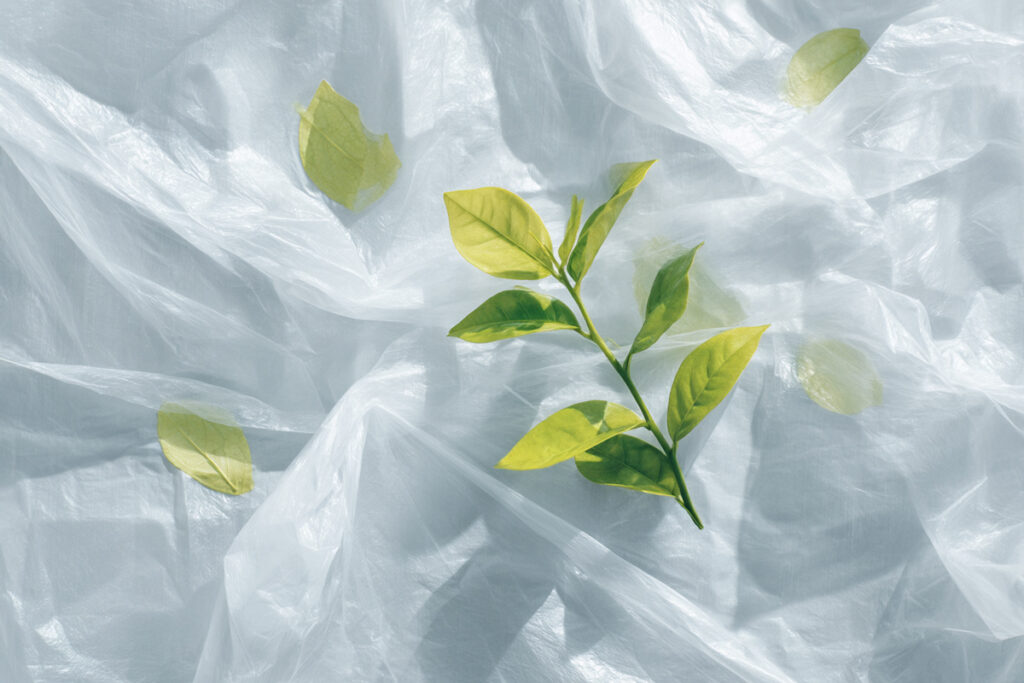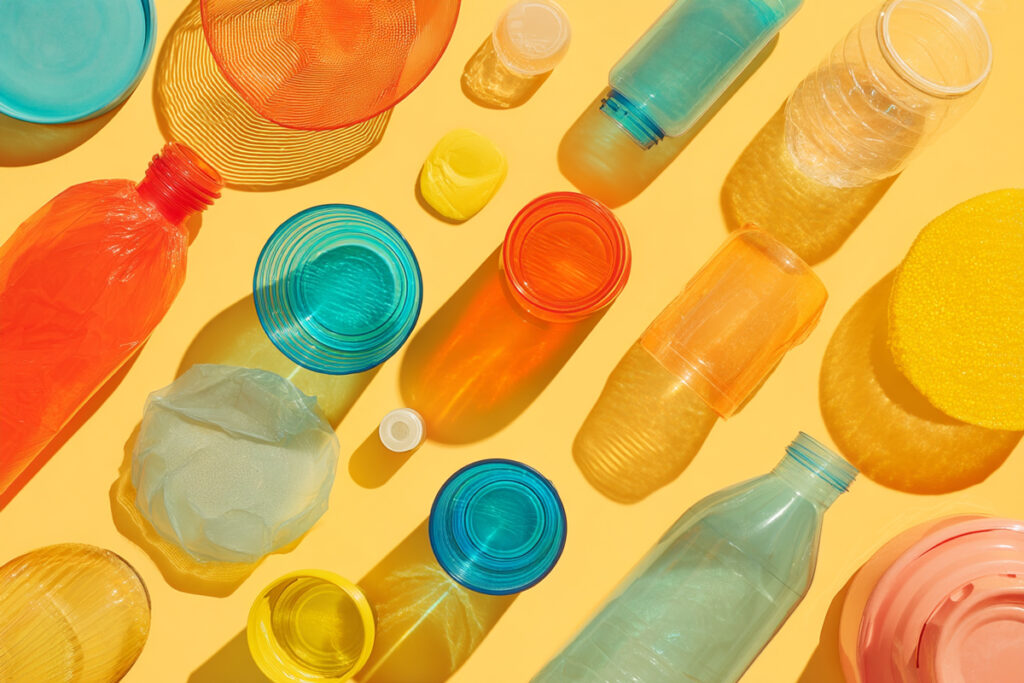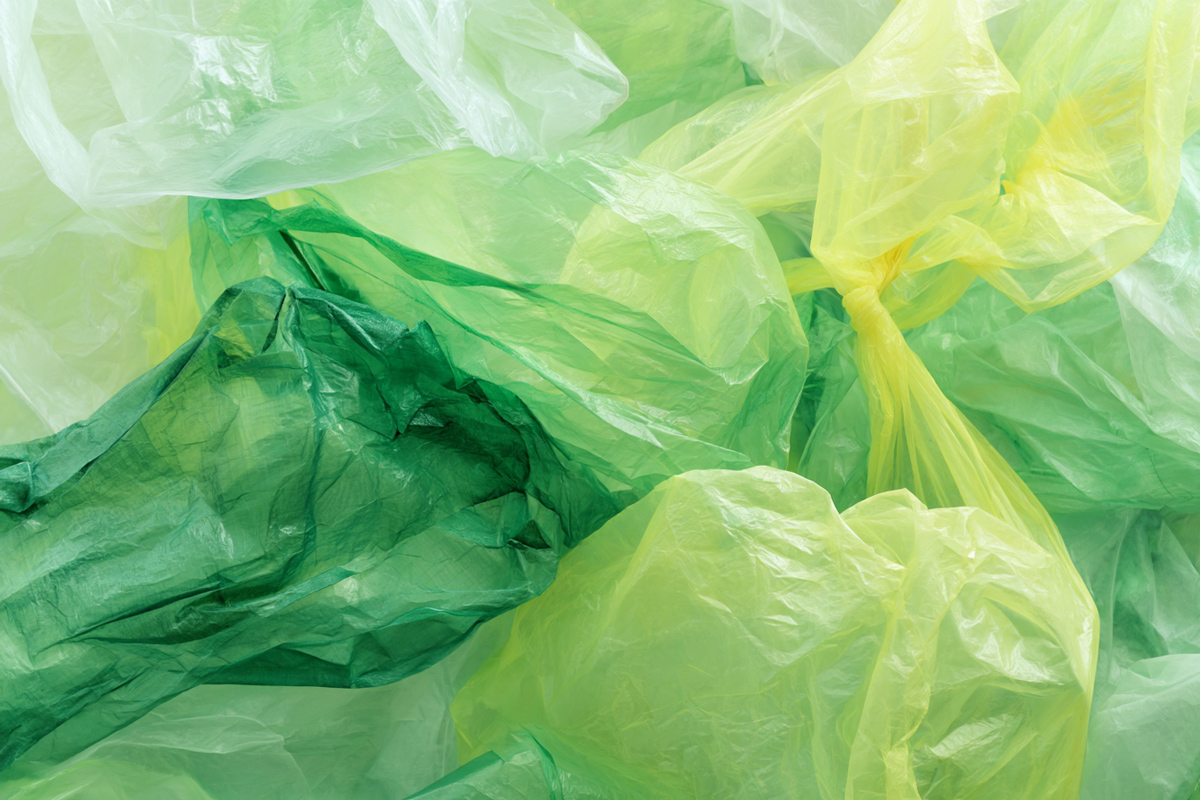Plastic is often seen as one of the biggest environmental problems. It doesn’t break down easily, pollutes ecosystems, and contributes to waste build-up. However, not all plastics are the same. Some are designed to reduce environmental harm by being recyclable, biodegradable, or made from renewable sources.
In recent years, businesses and consumers have been looking for alternatives to traditional plastics. Governments are also pushing for change, with the UK introducing policies like the Plastic Packaging Tax, which encourages companies to use recycled materials. These efforts aim to reduce reliance on virgin plastics and promote more sustainable options.
This article explains what makes plastics environmentally friendly, the different types available, and their benefits and challenges.
Table of content:
- What are environmentally friendly plastics?
- Is plastic sustainable?
- Benefits of using environmentally friendly plastics for businesses

What are environmentally friendly plastics?
Plastics are widely used because they are durable, lightweight, and cost-effective. However, traditional plastics made from fossil fuels create long-term environmental problems, such as pollution and excessive waste. Environmentally friendly plastics aim to reduce these impacts by being recyclable, biodegradable, or made from renewable sources.
There are three main types of environmentally friendly plastics: bioplastics, biodegradable plastics, and recycled plastics. Each has different properties, applications, and challenges. Understanding these differences is essential for businesses and consumers looking to make more sustainable choices.
Bioplastics
Bioplastics are made from renewable sources such as corn starch, sugarcane (Polyair for example), seaweed, or even microorganisms. Unlike conventional plastics, which are derived from petroleum, bioplastics rely on plant-based or bioengineered materials, reducing reliance on fossil fuels.
Examples of bioplastics:
- Polylactic acid (PLA): a common bioplastic made from fermented corn starch or sugarcane.
- Polyhydroxyalkanoates (PHA): a biodegradable polymer produced by bacteria, often used in medical applications and packaging.
Uses of bioplastics:
- Food packaging
- Disposable cutlery
- Compostable shopping bags
- Agricultural films
Just because a plastic is bio-based doesn’t mean it is biodegradable. Some bioplastics function like traditional plastics and don’t break down easily in natural conditions. For example, PLA requires industrial composting to degrade properly, meaning it won’t break down in a landfill or the ocean.
Biodegradable plastics
Biodegradable plastics are designed to break down faster than conventional plastics under specific conditions, such as exposure to light, moisture, heat, or microbes. However, they still require controlled environments to decompose properly.
Examples of biodegradable plastics:
- Polybutylene Adipate Terephthalate (PBAT): often blended with PLA to improve flexibility and biodegradability.
- Polybutylene Succinate (PBS): used in food packaging and agricultural applications due to its ability to break down in industrial composting settings.
Uses of biodegradable plastics:
- Packaging films
- Food containers
- Shopping bags
Biodegradable plastics don’t degrade easily in regular landfills. They need specific industrial composting conditions, such as high temperatures and controlled humidity, which aren’t widely available. If disposed of incorrectly, they can contribute to plastic pollution just like conventional plastics.
Recycled plastics
Recycled plastics are made from post-consumer or post-industrial plastic waste. They help reduce the demand for virgin plastic, lowering environmental impact and keeping plastic waste out of landfills. However, recycling can only be done a limited number of times before the plastic quality declines.
Examples of recycled plastics:
- Recycled PET (rPET): Made from used plastic bottles and widely used in food and drink packaging.
- Post-Consumer Regrind (PCR): Plastic waste collected from consumers, processed into new plastic products.
Uses of Recycled Plastics:
- Packaging (bottles, trays)
- Textiles (clothing, carpets)
- Building materials (decking, insulation)
While recycled plastics help reduce the need for new plastic production, they degrade with each recycling cycle. Eventually, they reach a point where they can no longer be used and must be disposed of or converted into energy.

Is plastic sustainable?
Plastics are often viewed as a major environmental problem, but their sustainability depends on how they are produced, used, and disposed of. While traditional plastics contribute to pollution and waste, some plastics help reduce emissions, save energy, and even improve public safety. The key to understanding whether plastic can be sustainable lies in three areas: environmental impact, economic role, and social benefits.
Environmental sustainability
One of the main criticisms of plastic is its long lifespan, but this durability can also be a benefit. In industries like transport and packaging, plastics help reduce energy consumption and emissions. For example, lightweight plastic components in cars and airplanes improve fuel efficiency, lowering carbon emissions over time. In food packaging, plastics prevent spoilage by keeping products fresh longer, reducing food waste — an issue that has its own environmental consequences.
However, despite these advantages, plastic pollution remains a serious problem. A large portion of plastic waste still ends up in landfills or the ocean, where it takes centuries to break down. Even “biodegradable” plastics don’t always degrade as expected, and microplastics are now found in water, soil, and even human bodies. Another challenge is that most plastics are still made from fossil fuels, making the industry heavily reliant on non-renewable resources.
Economic sustainability
Plastic production is a major part of the UK economy, supporting industries like manufacturing, packaging, and recycling. The sector employs thousands of people, and businesses are increasingly looking for sustainable alternatives to comply with UK regulations like the Plastic Packaging Tax, which encourages the use of recycled materials.
Recycled plastics, in particular, have economic advantages. They reduce the demand for virgin materials, lower costs for manufacturers, and help companies meet sustainability targets. However, while using recycled content makes financial sense in the long run, producing bio-based or biodegradable plastics is still expensive compared to traditional options. The infrastructure for recycling and composting sustainable plastics is also underdeveloped, which makes it difficult for businesses to transition fully.
The challenges of sustainable plastics
Despite the benefits, no plastic is completely sustainable. Recycling rates remain low, especially for biodegradable plastics, which require specific composting conditions to break down properly. Many bio-based plastics still include petroleum-based components, making them less environmentally friendly than they appear. At the same time, confusion about which plastics can be recycled or composted leads to contamination in waste streams, making proper disposal even more difficult.
Plastic itself isn’t the problem — it’s how it is used and discarded. While recycling, reducing waste, and developing better materials can make plastic more sustainable, the industry still faces significant challenges.

Benefits of using environmentally friendly plastics for businesses
Switching to eco-friendly plastics helps businesses save money and look good to customers. Here’s why:
1. Follow UK rules and save on plastic taxes
- Avoid the £210.82 per tonne tax by using plastics with at least 30% recycled content
- Pay less under new rules that make businesses responsible for their plastic waste
- Get ahead of upcoming bans on single-use plastics
2. Save money in the long run
- Recycled materials may cost more at first but can save money over time
- Reusable plastics reduce the need to keep buying new packaging
3. Make customers happy
- About 75% of UK shoppers prefer eco-friendly products
- Build trust with customers who care about the environment
- Meet requirements from stores that only want sustainable packaging
4. Help create less waste
- Support systems that reuse materials instead of throwing them away
- Protect your business against future material shortages and price increases
5. Reach your green goals
- Lower your carbon footprint by using less fossil-fuel based plastics
- Improve your company’s environmental reputation with investors
By using eco-friendly plastics, businesses can cut costs, follow the rules, and build a better brand while helping the environment.
Choose sustainable plastics with Polythene UK
At Polythene UK, we’re committed to helping businesses reduce their environmental impact while staying compliant with UK regulations. Our range of environmentally friendly plastics includes:
- Recycled Polythene – Reduce waste and lower your Plastic Packaging Tax liability with high-quality recycled materials.
Biodegradable & Compostable Plastics – Designed to break down under controlled conditions, offering an eco-conscious alternative to traditional plastics.
Sustainable Packaging Solutions – From recyclable plastic films to innovative bio-based materials, we provide packaging that meets both environmental and performance demands.
By choosing Polythene UK, you get cost-effective, high-performance solutions that help your business meet sustainability goals while maintaining product quality.
Make the switch today. Contact us now for a consultation and discover how our sustainable plastics can benefit your business!




